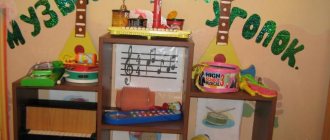The influence of various factors on adaptation
How long it will take a child to get used to a child care facility is influenced by many factors. Let's look at the main ones.
Child's age
The situation is such that many mothers strive to send their children to kindergarten as soon as possible and go back to work after maternity leave. Therefore, recently the need for nurseries has increased, starting to accept children from one and a half years old, which not every preschool institution has.
Most experts believe that the younger the child, the more difficult his adaptation period is, since the immune system has not yet strengthened and the need for parental care and attention has increased.
Therefore, the optimal age for starting kindergarten life is considered to be 2.5 - 3 years. And pediatricians insist that parents send their children to kindergarten no earlier than three years of age.
Read detailed material with expert opinions on this topic – Is it time to go to kindergarten? When is the best time to give up a child and what does a parent need to know?
Health status
As we have already said, children with limited health capabilities or private colds and chronic diseases have a hard time getting used to kindergarten.
Therefore, parents should postpone kindergarten and wait until the child’s body can adapt to preschool without serious consequences.
Level of development of skills and abilities
By the beginning of kindergarten life, children should have all the necessary skills and abilities: go to the potty, hold a spoon, drink from a cup, partially dress and undress themselves, and also be able to ask an adult for help.
If parents are used to doing everything for the child, it will be difficult for him to get used to independence. Accordingly, his adaptation period may be prolonged.
Level of socialization
In kindergarten, the child will have contact with a large number of children and adults. It’s good if he already has such communication experience. Otherwise, it will be very difficult for a child who is accustomed to seeing only his mother and father next to him to get used to the children's team and teachers.
How to get your child to talk if you suspect that he is being bullied or beaten in kindergarten?
Also, the duration of adaptation depends on the personality of the teacher to whom the child is assigned, the number of children in the group, the characteristics of the child’s nervous system and the atmosphere in the family.
Communication with children
This is the most important point of the rules of conduct for children in kindergarten. If your baby does not behave as expected, you may have serious problems. Many parents react very violently to the slightest offense inflicted on their child. They can seriously spoil not only your mood. So teach your child caution, tolerance and common sense when interacting with children:
- You cannot beat, insult, or touch other children, even if they allow themselves to do so. In response to beatings and curses, you need to complain to your parents and teachers, and no longer communicate with the aggressor. It is better not to approach cruel children at all.
- You cannot boast about your financial situation and humiliate other children with hints about their poverty. The child himself has not yet earned anything, and in this sense all children are equal.
- You can’t spoil other people’s things and allow them to break your own. If other children break a toy, it is important to complain to parents and teachers in order to avoid a conflict.
- You cannot take other people's things for yourself, either secretly or openly. If you really want a toy, you need to ask your mother for it, and not take it from others. You cannot even accept a toy as a gift, as this may cause indignation among parents who bought this item for their child and do not intend to lose it.
- You cannot interrupt, shut up, or discuss other children behind their backs. A polite person will always listen to others and will not impose his opinion if they do not want to listen to him. It is also important not to occupy the airwaves with your person. Many children talk a lot and do not allow a word to get in, and therefore very soon they are left without listeners and worry, not understanding why this happened.
Any conflict situations are resolved by the teacher; he is an arbiter and judge.
Don’t be shy about complaining, because timely intervention will prevent a fight. If a child does something that is forbidden, imitating bad examples, this should also be reported to the teacher. Only he can call the parents and notify them about the problem that has arisen.
Parents themselves must set a good example. There is no need to sort things out with children who have done wrong. This is not your job, you have no right to scold and shame them. You can express your indignation in a calm manner to the teacher and parent if the problem is serious. But there is no need to throw a tantrum, especially in front of children. Fights and other antics will only worsen the situation and force you to look for another kindergarten. But you are neighbors, why should you quarrel?
Table etiquette
During meals, the upbringing of a child is most evident. Cultured children eat carefully, do not criticize food, do not spit, or disturb others. Therefore, it is very important to leave all table games at home. Yes, and there they are inappropriate, to be honest.
- You should not talk with your mouth full, play with food or bite too large pieces (this is very dangerous). You could choke or stain your neighbor, furniture, and yourself.
- You cannot put your elbows on the table, swing on a chair, or swing your arms and legs during a meal. All games are after meals.
- Drinks should be drunk in small sips, main courses should be eaten with a fork, and soup with a spoon. This is obvious to you, but often the child makes mistakes even in such trifles.
- After eating, wipe your lips and hands with a napkin. After eating, you need to go to the toilet and rinse your mouth so that all food particles are removed.
- You can't talk bad about food and offend chefs. After eating, you need to thank and put away the dishes.
If a child doesn’t like the food, he should tell his parent about it after class, and not shout at the whole Ivanovskaya.
If he cannot eat at all, you need to tell the teacher that he cannot eat, otherwise he will feel bad. In such cases, the employee will not force him to eat food. In some children's institutions, children set the table themselves. In this case, you need to explain to the child that he cannot run, dance, or be distracted when he is carrying a plate. Otherwise, injury cannot be avoided, and all the contents will fall out onto the floor.







